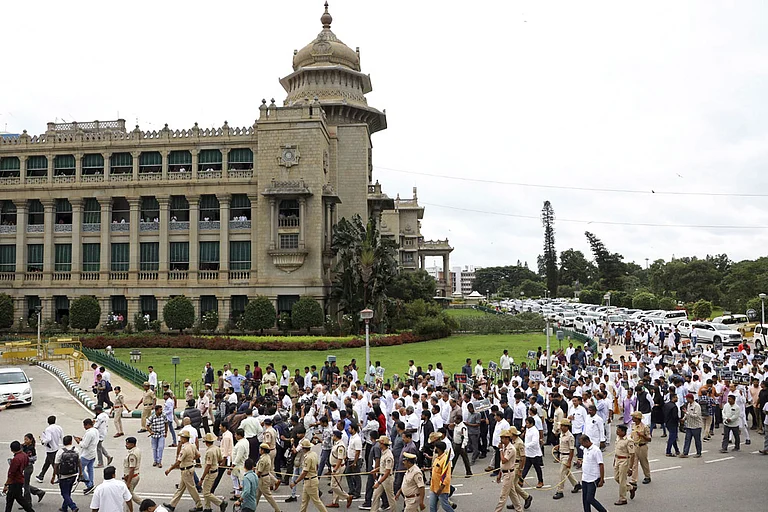
Karnataka’s caste census faced server failures and network issues, slowing progress to 2–4 per cent daily.
CM Siddaramaiah ruled out deadline extension, instructing officials to speed up to 10 per cent coverage per day.
High Court allowed the survey with conditions on privacy and voluntary participation; final report expected by December.
Karnataka Chief Minister Siddaramaiah declared that the technological problems with the Social and Educational Survey, or "caste census", had "almost been sorted out" and that the survey will move forward as planned.
He emphasised that there would be no extension and insisted that the survey will be finished within the allotted time.
The "slow pace of the survey" has drawn criticism, with server problems and technical difficulties impeding data collection.
Ministers, senior officials, Deputy Commissioners (DCs), Zilla Panchayat CEOs from every district, and Madhusudan R. Naik, the chairman of the Backward Classes Commission, participated in a video conference that Siddaramaiah presided.
The survey, being conducted by the Karnataka State Commission for Backwards Classes, began on September 22 and is scheduled to continue until October 7.
"The survey work started on September 22 and will be completed by October 7. There are some technical issues, all of which have to be resolved. They have almost been sorted out. So, the survey work will be held in a full-fledged manner from today," Siddaramaiah said.
Speaking to reporters, he said all DCs and CEOs had been instructed to take the survey "very seriously" to ensure it is completed within the deadline.
"There is no question of extension of the survey period. The survey will have to speed up. From today, in all districts it will speed up, including in Bengaluru," he added.
On Thursday, the Karnataka High Court refused to halt the survey but ordered the State Backward Classes Commission to protect the privacy of the information gathered and guarantee residents' voluntary participation.
The chief minister gave his word that "whatever conditions imposed by the court will be followed." In a number of places, enumerators—mostly government school teachers—who walk door to door with the survey software have encountered technological issues.
According to officials, data collecting has been impacted by network outages, server problems, and OTP generating failures.
"So far, only 2–4 per cent of survey progress has been achieved daily. Strict instructions have been given that a minimum of 10 per cent progress should be achieved every day," Siddaramaiah said.
Officials said while the goal is to cover all 1.43 crore families in the state, only 2.76 lakh families have been surveyed thus far.
Assuring remuneration for enumerators, Siddaramaiah said, "There are media reports that there is resistance in some places from teachers (who are enumerators). There may be some misconceptions. There is no resistance from anywhere. If anyone resists and doesn’t cooperate, action will be taken in accordance with the law." The survey will involve around 1.75 lakh enumerators covering about 7 crore people across the state.
Using a 60-question questionnaire, the exercise is being conducted "scientifically" at an estimated cost of Rs 420 crore, according to officials.
By December, the government should get the commission's report.
With PTI inputs.




























